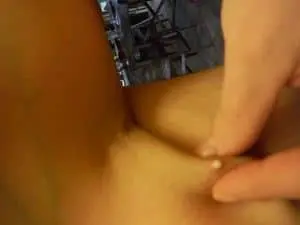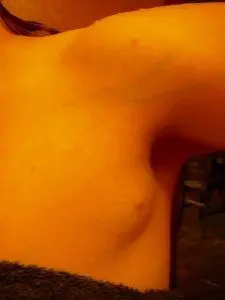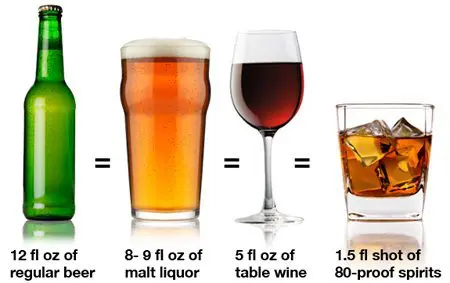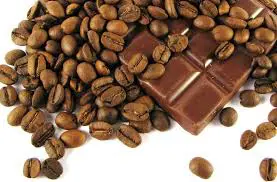
Reading that title your first thought might be, “Oh, it’s a parody piece aimed at those women who think breastfeeding ruins your boobs”—sadly, not so much. With my first three pregnancies I got lumps in my armpits, something I’d researched and talked with my doctor about and discovered to be excess breast tissue along the tail of spence (in the armpit.) It engorged each pregnancy and went away afterwards. It really wasn’t a big deal, minus I looked like I had some serious armpit fat, but who wants to wear sleeveless shirts anyhow?
Anyway, so, when my fat little friends returned with baby four, I wasn’t happy to see them, but I wasn’t surprised either. Breastfeeding was going great, things were peachy. One day shortly after my labor my husband thought I’d gone au natural on him. From a distance apparently it looked like I hadn’t shaved my pits. That was the first sign of my new third boob. On top of the lumps, I started to get darkening of the skin. Honestly, between 3 boys ages 6 and under and a newborn, I didn’t really have time to care about some darkening skin. I just sort of forgot about it.
Fast forward to a month postpartum. I’m trying to sneak in a shower without a kid picking the lock on the door to invade with some inane request that just “couldn’t wait,” I go to shave, and I notice what looks like a zit with a whitehead. “Ewwwww,” I think, “how weird, I didn’t even get body acne during puberty,” then I do what every normal human being does with a zit, I squeezed the shit out of it.
A tiny white plug emerged and then—pause for effect—breastmilk! Naturally, my reaction was OMFG WTF is that?!?!? I’m growing a third fucking boob. Excuse my language there, but it was a third fucking boob. I was seriously freaked out. I’m having circus-lady flashes and shit. I, of course, immediately get my Google on after sending my husband at work and I’m-sure-amusing Facebook message that read, “I’m growing a third fucking boob!”
What’s Google got to say, well, more than my husband’s helpful reply of, “sweeeet, more boobs.” Mostly what I already knew and covered in my post on armpit lumps. It’s fairly normal to have extra breast tissue in the armpit that produces milk during pregnancy and breast feeding. Apparently, even third nipples are pretty common occurring in roughly 40% of the population. Most folks just don’t know about them—unless they have a baby and they darken, enlarge, or I don’t know start leaking milk. That last one is slightly less common occurring in only .04 to 6% of third nipple havers, the third boob havers.
Interesting triva also found, in Salem, they thought having a third boob made one a witch, because what else could you do with a third tit but suckle satan? Third boobs are also more common in those of German descent (that’s where that .04 to 6% range comes from, it appears different regions have varying prevalence).
I, of course, followed my Google mania with a call to my midwife, who laughed, a lot (she’s been with me through four kids) and then confirmed everything Google said, but the boob like the lumps would go away after I quit breastfeeding. I had nothing to worry about unless it became painful (and so may be infected).
So, there you have it, how breastfeeding gave me a third—and possibly fourth boob—the other side is also darker and showing a small lump I fear may become the assumed-zit take 2. This is really going to ruin tank top season…
Update: The other side has indeed developed a small bump that milk can be expressed from. (which I am of course not doing. The last thing I want is to increase the supply in these things– Alaska actually does not have a circus.)





